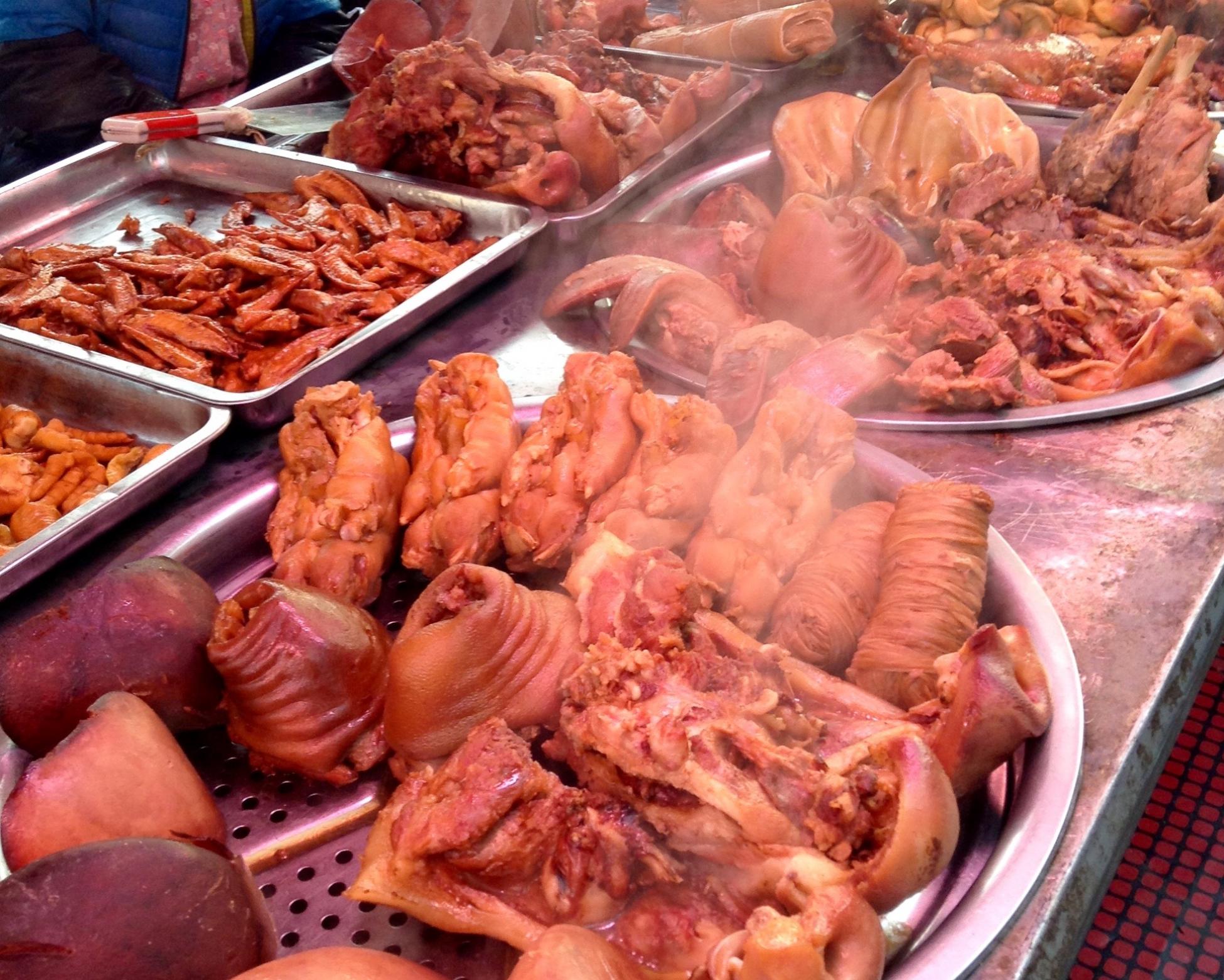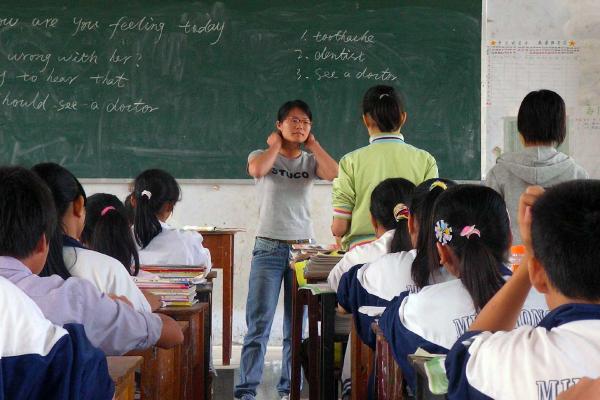Some wet markets are housed in buildings these days, but many of the ones locals frequent are simply camped out on the sidewalk along intersections.
Some say that these markets are holdovers from village life and that the government should destroy them. It’s true, there are an assortment of troubles that come when you mix people, poultry, cattle, fish, and fresh produce along with the added bonus of almost zero standards of sanitation. Pollution, unregulated hygiene, and minor traffic issues aside, I’m glad they’re still around.
I’ve been in Dalian for nearly six years, and just a few weeks ago I found another of these neighbourhood markets tucked away. Stretched out along one side of a quiet intersection is a night market with everything you could think of and a few more things.
Discovering what the market has to offer
Just as the sun hung above the horizon, my wife and I began walking through the seafood end of it. Pale prawns kicked around in pans of water; clams, crabs, oysters, and mussels all floated in buckets; and silver fish of all sizes laid next to grey squid in trays. People crowded around, asking for prices, haggling with the vendors in the loud, guttural Dalian Hua accent the city is known for. Despite living in a coastal city, I’m not a seafood guy, and those sea cucumbers genuinely scare me, so we just kept on moving into the next section.
Cuts of lamb, pork, beef, and chicken laid on several tables looking pink and freshly sliced, while the butchers stood nearby answering questions of price, type, and age of the meat. My mouth began watering, and my wife asked if I wanted anything. "No, no; not yet," I said while my inner carnivore salivated some more. I wanted to get a look at what the market had to offer before really buying much. At least that was my plan.
We passed the produce section, where Chinese cabbage, carrots, onions, cucumbers, tomatoes, lettuce, mushrooms, and several types of long green vegetables sat in boxes while shoppers hunted for the best selection. They held them up, twisting and turning them with such discerning eyes, it almost made me want to stop and ask them exactly what made each vegetable good or bad. Beyond the veggies and fruit stalls things began getting cooked.
First up are the tables of the packed rice treats, Da Mi Hua. They are pressed into inch thick bricks about three inches long and are made from sugar and different sorts of rice. Next to them, a guy makes Cong You Bing (Chive Oil Pancake). When done, the fluffy circular bread is cut into triangles and stacked on top of each other.
Jiaohua Ji or Beggar’s Chicken is up next. The Jiangsu Province specialty is made by covering an entire chicken with clay and baking it for nearly six hours. The legend of its origin says the mud or clay, when cooked and cracked open, removes the bird’s feathers, completely revealing juicy meat.
Piled high in a kettle are boiling Shi Dan; these eggs have fetuses in them that you have to crunch through.
Not everything is appealing. We shy away from the pig snouts, feet, knees, and ears, and I stare at a gelatinous mound of cubes shaking on a cook’s grill. Chao Menzi, a starch-based Dalian delicacy, is getting fried. Another alarming sight I’ve heard of before catches my attention. Piled high in a kettle are boiling Shi Dan; these eggs have fetuses in them that you have to crunch through. We keep walking.
More fried, baked, and fresh foods take up the nearby tables, but the crowd makes it difficult to get in close at all the stalls. Household supplies and knick-knacks litter the next few stands, and we give only cursory glances at much of the stuff. As we come to the end of the market, a van with its back door open and people gathered around the bumper draw our eyes. My wife tells me she wants some, but I’m not even sure what it is. Stepping closer, I see that hollow, cylindrical popcorn sticks are being tossed into a large translucent plastic bag. Bao Mi Hua Bang, it’s called, and the metal box in the bed of the van spits a long continuous tube of it out as the people manning it snap off the popcorn stick every 30 centimetres or so. We buy some and then cross the road as the moon replaces the sun above the horizon.
More than just a market
My mother and aunts love this place, my wife tells me, reminding me that it is the older generation of Chinese that frequent these markets. To them all the hustle and bustle of development means little in the face of their main concern: providing for their family. These markets grant them access to cheap, fresh food that they daily prepare for their family’s meals.
Anyone who has spent any time in China or learning the language knows that food is a core cultural component to the Chinese. Ni chi fan le ma? Xiang chi shen me? Tai shou le ni! Chi dian ba! (Have you eaten? What do you want to eat? You’re too skinny! Eat more!) You’ll hear these and more if you spend any time at all with Chinese friends or family, and that’s just the tip of the iceberg.
Maybe outdoor markets are holdovers from a time that iconoclasts would like to eradicate in the name of progress, and perhaps that day will come soon enough. Until then, I plan to walk around their crowded stalls and down the busy sidewalks while I still can.
Add this article to your reading list




